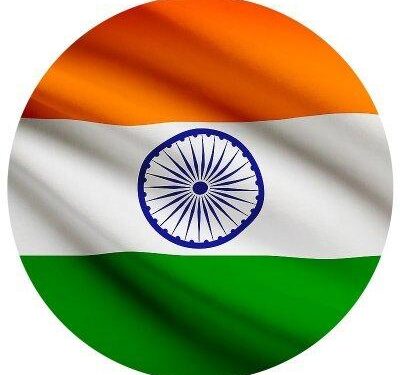Title: How India Alienated Bangladesh: A Shift in Foreign Policy Dynamics
In recent years, the once-strong ties between India and Bangladesh have begun to fray, revealing a complex web of diplomatic challenges that have left observers questioning the future of their relationship. Historically rooted in shared cultural, linguistic, and geographic ties, the partnership was characterized by mutual cooperation in areas such as trade, security, and migration. However, a series of policy decisions and geopolitical missteps have contributed to growing discontent in Dhaka and a sense of alienation from New Delhi. As Bangladesh navigates its own aspirations for regional leadership and autonomy, this article examines the pivotal moments and underlying factors that have led to a cooling of relations between these two neighbors, and explores the broader implications for South Asia’s geopolitical landscape.
Understanding Historical Grievances and Economic Disparities in India-Bangladesh Relations
The historical grievances between India and Bangladesh are deeply rooted in the partitions and conflicts that have shaped the two nations. Historical events such as the Bangladesh Liberation War in 1971, where India played a pivotal role by supporting the Mukti Bahini against Pakistan, are often overshadowed by subsequent diplomatic tensions. Some key issues contributing to this atmosphere of distrust include:
- Water rights: Disputes over river water sharing, particularly concerning the Teesta and Ganges rivers, have fueled tensions, with Bangladesh accusing India of failing to fulfill agreements.
- Migration concerns: The influx of illegal migrants from Bangladesh to India is a sensitive issue, leading to fears of demographic changes and resentment among local populations.
- Cultural perceptions: Despite shared cultural ties, stereotypes and misrepresentations in media often exacerbate misunderstandings and public sentiments against one another.
Economically, the disparities have further complicated the relationship, with Bangladesh emerging as one of the fastest-growing economies in South Asia. While India’s robust economic policy could have paved the way for mutually beneficial collaboration, it often appears overshadowed by a perception of dominance. The economic interactions between the nations reveal a competitive dynamic rather than a collaborative one:
| Aspect | India | Bangladesh |
|---|---|---|
| GDP Growth (2023) | 6.5% | 6.9% |
| Major Exports | Textiles, IT services | RMG, jute products |
| Trade Balance | – | + |
This contrasting economic growth trajectory creates a complex interplay in their diplomatic relations, affecting how policies are perceived and implemented between the two nations. Understanding these underlying factors is crucial for any meaningful dialogue moving forward.
Assessing the Impact of Policy Decisions on Diplomatic Ties and Regional Stability
The evolving dynamics between India and Bangladesh have cast a long shadow on regional stability, with recent policy decisions significantly reshaping diplomatic ties. India’s focus on border security and anti-immigration laws have created a rift, pushing Bangladesh into a defensive posture. The Citizenship Amendment Act (CAA), perceived as discriminatory, has engendered wider concerns in Dhaka regarding issues of identity and citizenship. This law, along with stringent border controls, has fueled fears of social unrest and alienation among the Bangladeshi populace, once seen as a reliable neighbor and partner. As New Delhi tightens its grip on its borders, the diplomatic dialogue has shifted to a more cautious and adversarial tone, clouding the once robust ties between the two nations.
Moreover, economic partnerships that once facilitated collaboration are now under scrutiny. Trade agreements and investments are stymied by heightened tensions, risking economic repercussions for both countries. For instance, the introduction of tariffs and non-tariff barriers has adversely affected bilateral trade figures, leading to increased frustrations on both sides. To illustrate this decline, the table below summarizes the recent trade statistics:
| Year | Bangladesh Exports to India (in million USD) | India Exports to Bangladesh (in million USD) |
|---|---|---|
| 2019 | 1,100 | 1,200 |
| 2020 | 900 | 1,000 |
| 2021 | 850 | 950 |
As both nations grapple with nationalistic pressures and internal challenges, the implications of these decisions threaten to destabilize the region further, underscoring the intricate balance required in foreign policy that favors mutual growth and security.
Proposals for Rebuilding Trust: A Roadmap for Future Cooperation Between India and Bangladesh
To mend the frayed ties between India and Bangladesh, both nations must engage in proactive diplomacy focused on trust-building measures. Bilateral dialogues should be prioritized to address unresolved issues such as border management and water resource sharing. Emphasizing transparency in trade practices and extending business opportunities can foster economic interdependence, thereby cementing relational bonds. Additionally, establishing joint task forces to tackle common challenges such as climate change, terrorism, and cross-border crime will signal goodwill and shared priorities.
Moreover, cultural exchanges could play a significant role in rekindling mutual respect and understanding. Initiatives could include:
- Organizing joint festivals celebrating cultural heritage.
- Promoting educational programs that encourage student exchanges and collaborations.
- Facilitating collaborations in the arts and sports to deepen community ties.
A comprehensive approach towards building people-to-people connections will undoubtedly help soothe historical grievances and create a more harmonious environment for future cooperation. By embracing these strategies, both India and Bangladesh can pave the way for a resilient partnership that benefits their citizens and the region at large.
Closing Remarks
In conclusion, the evolving relationship between India and Bangladesh serves as a compelling case study in the complexities of regional diplomacy. While historical ties and cultural affinities once promised a strong partnership, a series of diplomatic missteps, territorial disputes, and rising nationalist sentiments have strained these bonds. The alienation of Bangladesh by India not only impacts bilateral relations but also carries significant implications for regional stability and cooperation in South Asia. As both nations navigate this turbulent landscape, the question remains: can they reconcile their differences and rebuild a partnership that honors their shared history while addressing contemporary realities? The answer will be vital for the future of both countries and the broader geopolitical landscape of the region.















